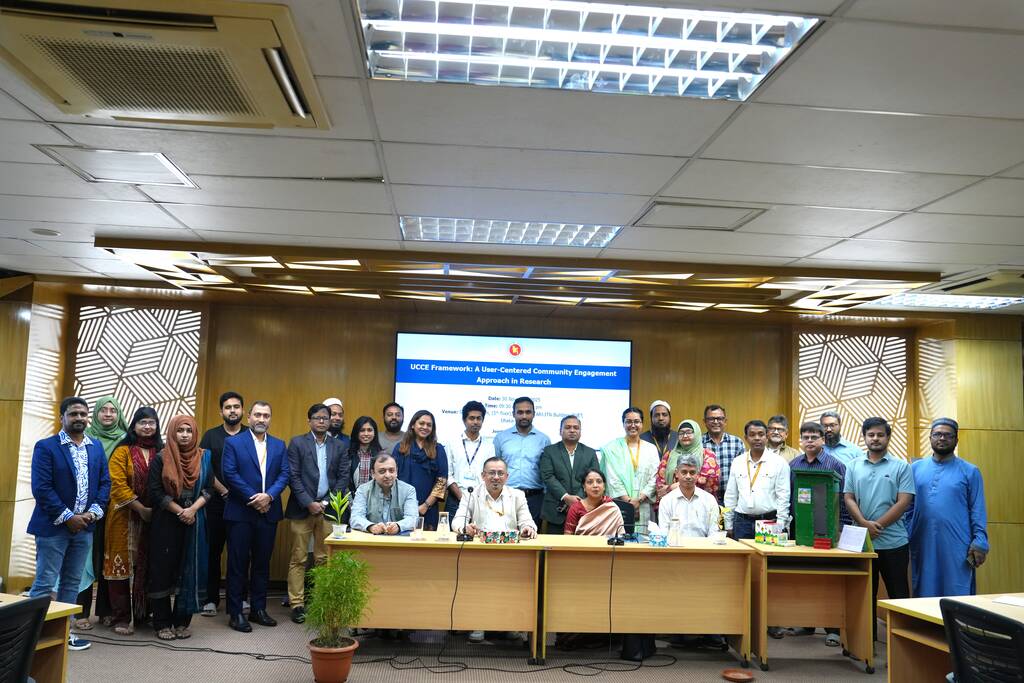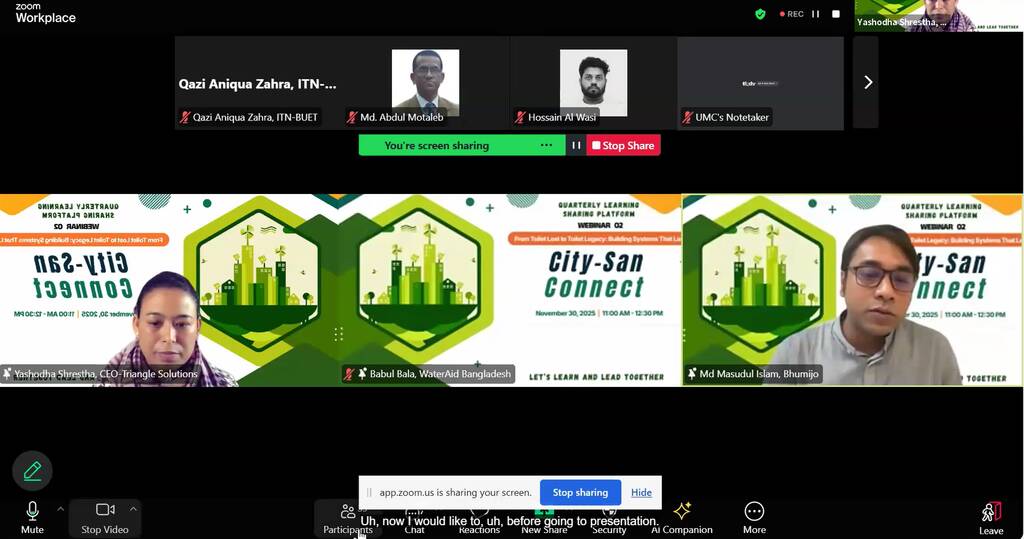Paurashava personnel from Kushtia and Faridpur municipalities gathered for a two-day training from 31 July to 01 August on ‘Enhancing Gender Equality and Inclusion in WASH Services.’ The objective of the training was to enhance the knowledge and skill of Municipal officials on Gender mainstreaming, which refers to the integration of gender perspectives and considerations in the fields of WASH, DRR, FSM, and sanitation entrepreneurship. This would make the WASH (Water, Sanitation, and Hygiene) services more responsive to the needs of all genders and citizens, ensuring a healthier, more equitable society where no one is left behind.
International Training Network of Bangladesh University of Engineering and Technology (ITN-BUET) and the CWIS-FSM Support Cell, DPHE jointly organized the training at ITN-BUET to strengthen gender equality and inclusion in the WASH sector.
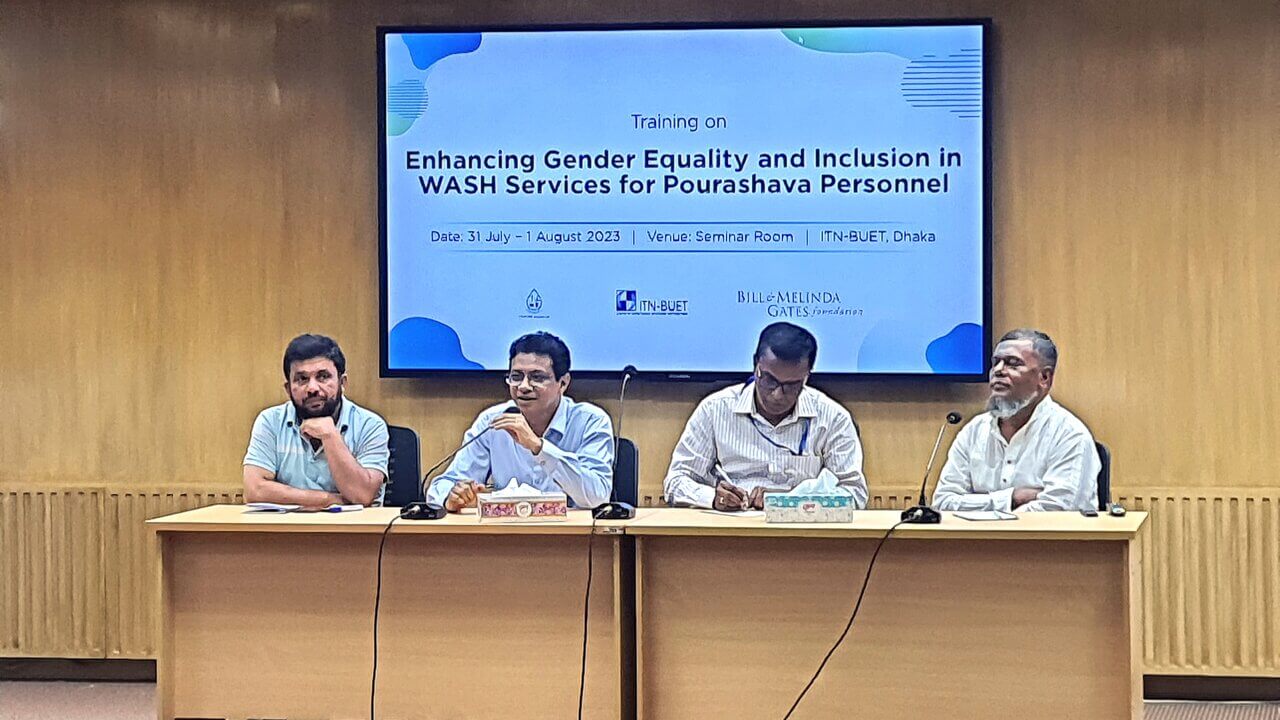
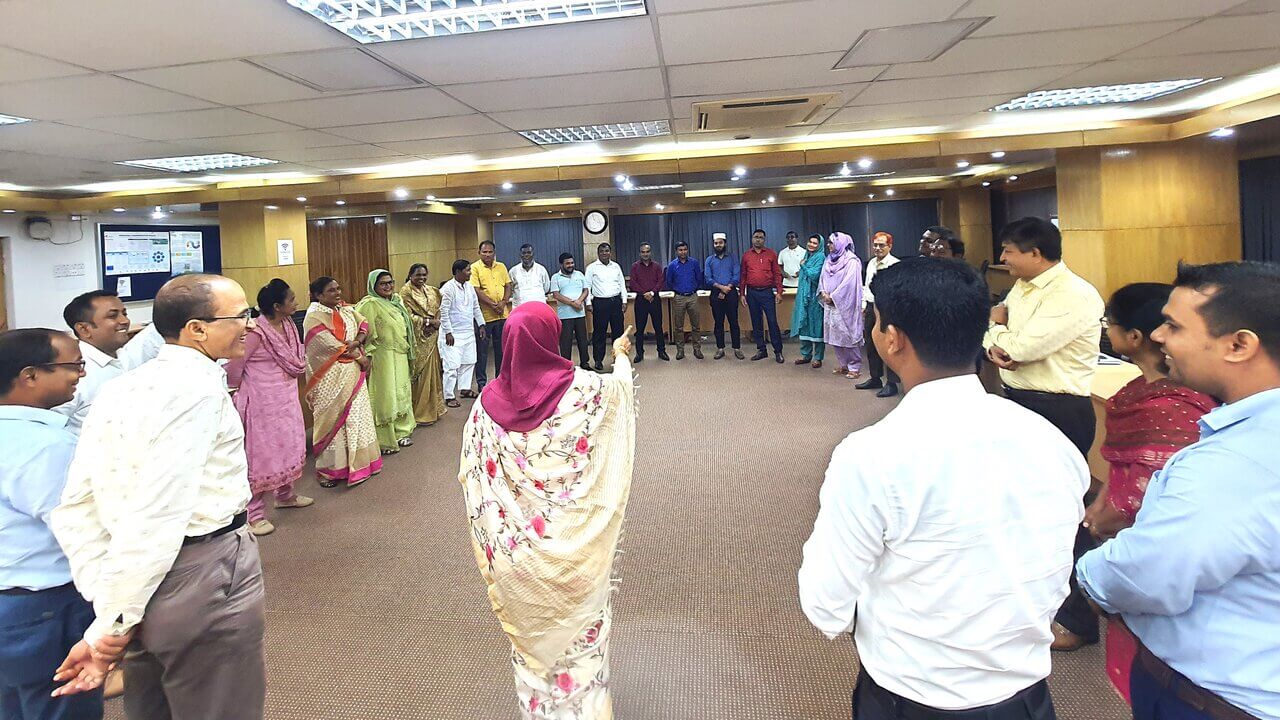
The Additional Chief Engineer of DPHE, Mr. Tushar Mohon Shadhu Khan, inaugurated the event. He said, “It is evident that gender is often overlooked in WASH services, and we might miss addressing equality and inclusion in certain areas. We developed this training manual to tackle the issue and align with SDGs 5 and 6. We must put this knowledge into practice to make a difference.”
Professor of the Civil Engineering Department of BUET and former Director of ITN-BUET Dr. Muhammad Ashraf Ali said, “I welcome all the Paurashava and DPHE personnel. Your presence is much appreciated as we pilot training on Gender Equality and Inclusion in WASH Services. Your valuable feedback will be instrumental in refining the manual and the training, ensuring its effectiveness and benefit for all participants. We will work together to make this training experience impactful and rewarding.”
The comprehensive training covered basic concepts of sex, gender, gender roles, gender equity & equality, gender mainstreaming, and women empowerment. The training also aims to foster an understanding of diversity, intersectionality, and the specific needs and challenges of marginalized groups, including people with disabilities.
The participants also explored National policies and regulations concerning gender and WASH, which equipped them to align their projects with legal frameworks for enhanced effectiveness. They also critically evaluated their current practices in WASH services to explore more inclusive approaches to better serve their communities and improve the quality of life for everyone.
Creating women-friendly working environments within the WASH sector emerged as another crucial aspect of the training. Paurashava personnel learned strategies to create supportive workspaces that encourage women’s participation and offer equal growth opportunities.
Eventually, the participants gained an in-depth understanding of gender-responsive WASH interventions, which will help them increase their competency in managing, implementing, monitoring, and evaluating gender-responsive projects in the WASH services using evidence-based practices and gender-sensitive indicators.
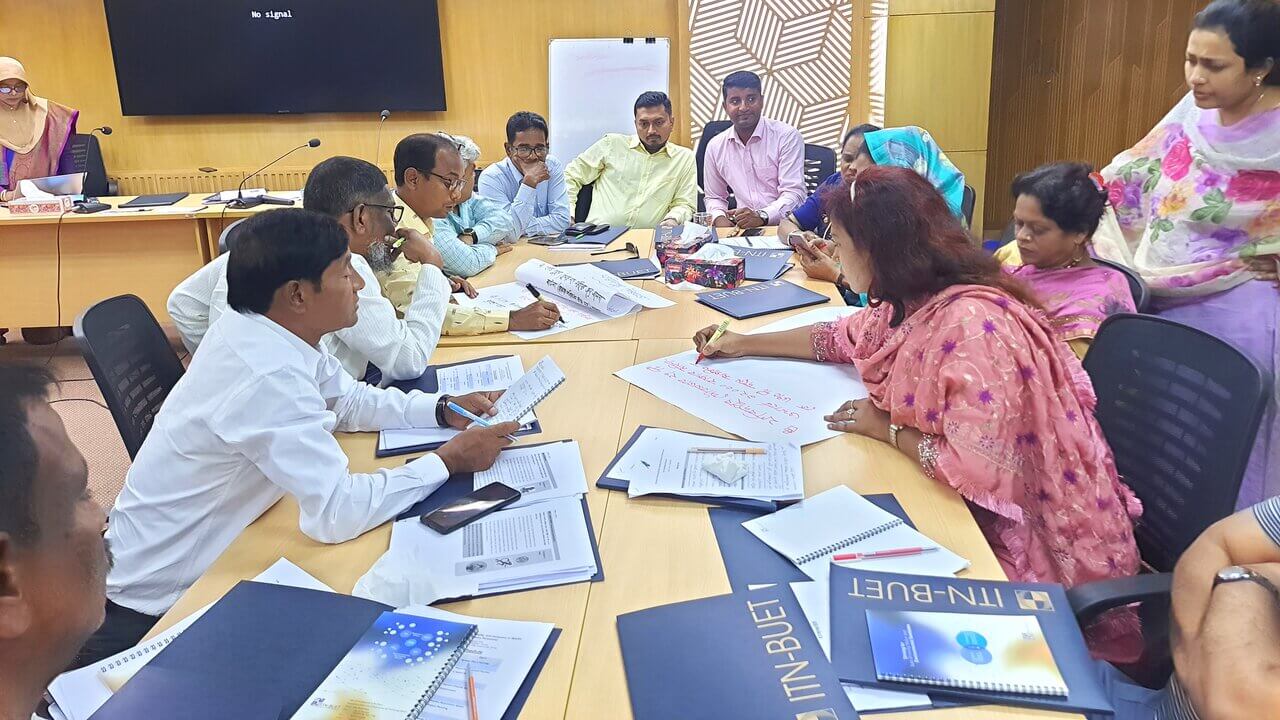
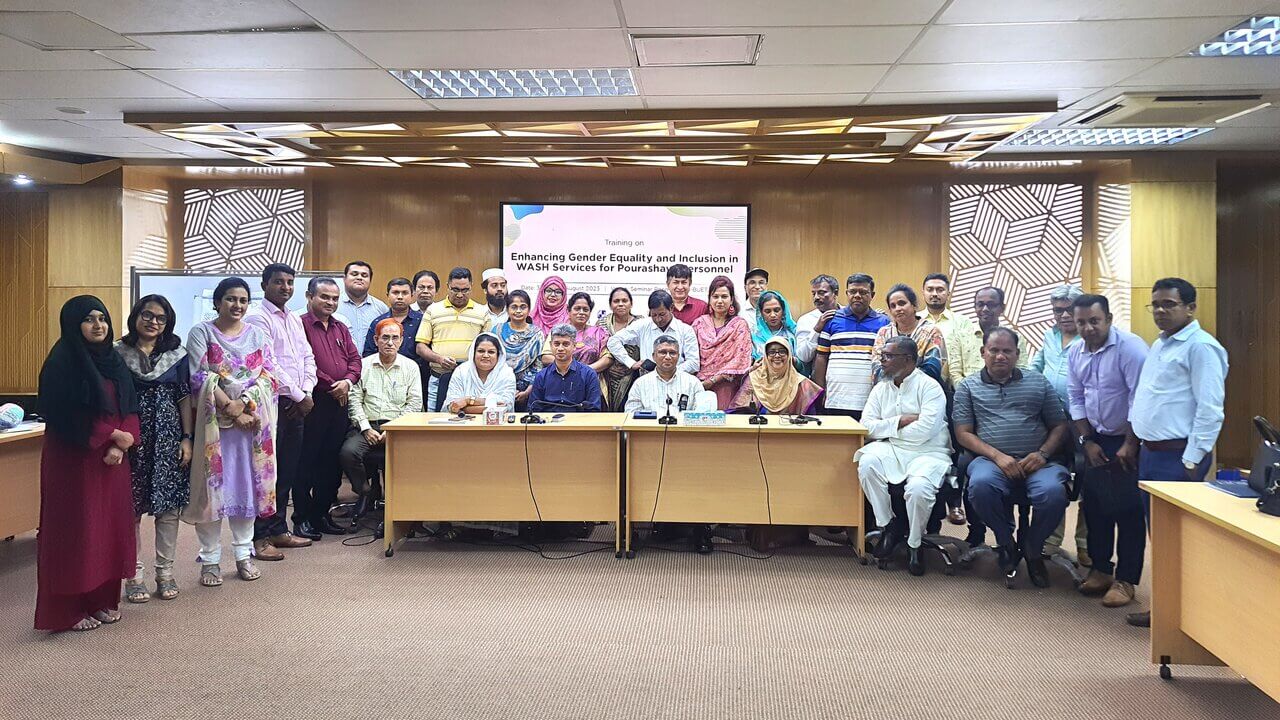
A diverse and dynamic group of 35 participants from Faridpur and Kushtia Municipalities, including 12 talented and inspiring women, attended the training. The attendees included Engineers, local councilors, social development officers, city planners, hydrologists, and other Paurashava officials. The participants provided important feedback to deliver the course and to update the module.
Councilor of Faridpur Paurashava Ms. Chameli Akter, said, “The training is so helpful. I intend to use the principles of gender equality and inclusion in Faridpur’s WASH services. We will cultivate a community where dignity and fairness prevail, fostering an environment of mutual respect and opportunity for all.”
Councilor of Kushtia Paurashava Mr. Ezazul Hakim said, “Gender equality and inclusion are crucial for ensuring top-notch sanitation services. This training will be a valuable learning experience, and we will put the knowledge to work in our areas.”
The outcome of this training was to empower Paurashava personnel as change agents, driving gender equality and inclusion in the WASH sector along with climate change, disaster risk reduction, and women entrepreneurship. With the new knowledge and practical tools, these WASH city leaders and Paurashava officials will lead in creating a more equitable and inclusive WASH service delivery system throughout the country.



